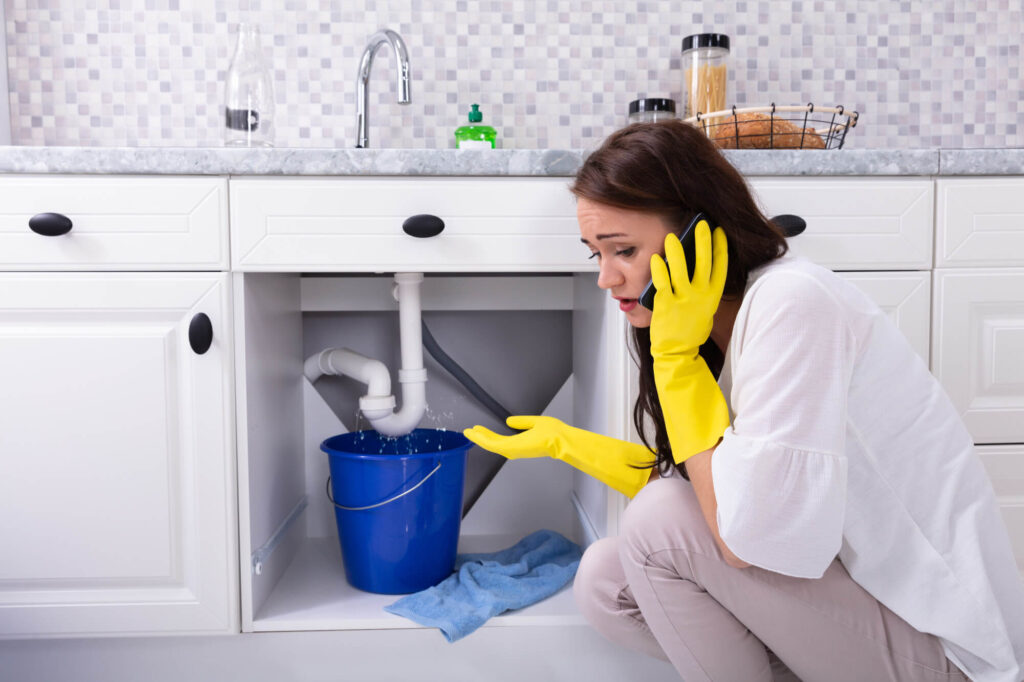A clogged drain can be a major inconvenience, causing water to back up and potentially leading to costly repairs. Preventing drain clogs is not only beneficial for your plumbing system but also for your peace of mind. In this comprehensive guide, we will explore effective strategies and practices to avoid clogging your drain system, ensuring that water flows freely and efficiently in your home.

1. Proper Disposal of Kitchen Grease and Oils
One of the primary culprits of drain clogs in the kitchen is the improper disposal of cooking grease and oils. Instead of pouring these substances down the drain, which can lead to grease buildup and blockages, use a designated container to collect them. Once the grease has cooled and solidified, dispose of it in the trash.
2. Use Sink Strainers
Installing sink strainers in your kitchen and bathroom sinks is a simple yet highly effective way to prevent debris from entering your drain system. These strainers capture food particles, hair, and other solids, allowing you to easily dispose of them in the trash.
3. Regularly Clean Your Drains
Preventative maintenance is key to avoiding clogs. Routinely clean your drains using a mixture of baking soda and vinegar. Pour half a cup of baking soda followed by a cup of vinegar down the drain, and let it sit for about 30 minutes. Then, flush with hot water. This natural cleaning method can help break down buildup and maintain a clean drain.
4. Be Mindful of What Goes Down the Toilet
Toilets are designed to flush human waste and toilet paper. Avoid flushing non-biodegradable items like paper towels, sanitary products, and wet wipes, as they can easily lead to toilet clogs. A good rule of thumb is, “If it didn’t come out of your body or it’s not toilet paper, don’t flush it.”
5. Dispose of Food Scraps Properly
In the kitchen, food scraps should be disposed of in the trash or composted, rather than washed down the sink. Garbage disposals can handle some food waste, but fibrous or starchy items can lead to clogs over time.
6. Regularly Remove Hair from Drains
In the bathroom, hair is a common culprit for drain clogs. Make it a habit to remove hair from the shower or bathtub drain after each use. You can use a drain snake or a specialized tool designed for this purpose.
7. Use a Hair Catcher
Installing a hair catcher or drain cover in your shower or bathtub is a proactive step to prevent hair and soap scum from entering the drain. These inexpensive devices can save you from dealing with clogs in the long run.
8. Regularly Maintain Your Garbage Disposal
If you have a garbage disposal, regular maintenance is crucial to prevent clogs and keep it running smoothly. Run cold water while using the disposal, and avoid putting hard or fibrous materials like bones, corn husks, and potato peels down the disposal.
9. Avoid Excessive Toilet Paper Usage
While toilet paper is designed to break down easily in water, using excessive amounts can still lead to clogs. Use an appropriate amount of toilet paper to minimize the risk of drain blockages.
10. Don’t Pour Harsh Chemicals Down Drains
Harsh chemical drain cleaners may seem like a quick fix, but they can damage your pipes and, in some cases, worsen clogs. Opt for natural methods like baking soda and vinegar or consult a professional plumber for safe and effective solutions.
11. Maintain Trees and Plants Near Sewer Lines
If you have trees or shrubs near your sewer lines, their roots can infiltrate the pipes and lead to serious clogs. Regular maintenance, such as trimming or root barriers, can help prevent this issue.
12. Install Lint Filters in Washing Machines
Washing machines can produce lint and debris that end up in your drain system. Installing lint filters on your washing machine hoses can help trap these particles before they enter your plumbing.
13. Schedule Professional Drain Inspections
Regular drain inspections by a professional plumber can identify potential issues before they become clogged. Professional inspections and maintenance can help keep your drain system in optimal condition.
14. Be Cautious with DIY Repairs
While DIY plumbing repairs can be tempting, they can sometimes exacerbate the problem. If you’re unsure about how to address a drain issue, it’s best to consult a professional plumber to avoid causing further damage.
15. Learn to Recognize Early Warning Signs
Familiarize yourself with the early warning signs of drain clogs, such as slow-draining water, gurgling sounds, or foul odors. Addressing these issues promptly can prevent more significant blockages from forming.
16. Invest in Drain Screens for Outdoor Drains
If you have outdoor drains, such as those in your yard or driveway, consider using drain screens to prevent leaves, debris, and sediment from entering and clogging the system.
Conclusion
Preventing drain clogs is essential for maintaining the functionality of your plumbing system and preventing costly repairs. By adopting these proactive practices, being mindful of what goes down your drains, and performing routine maintenance, you can enjoy a smoothly running drain system and the peace of mind that comes with it. Remember that, when in doubt or facing persistent clogs, professional plumbers are available to provide expert advice and solutions to keep your drains free-flowing.

